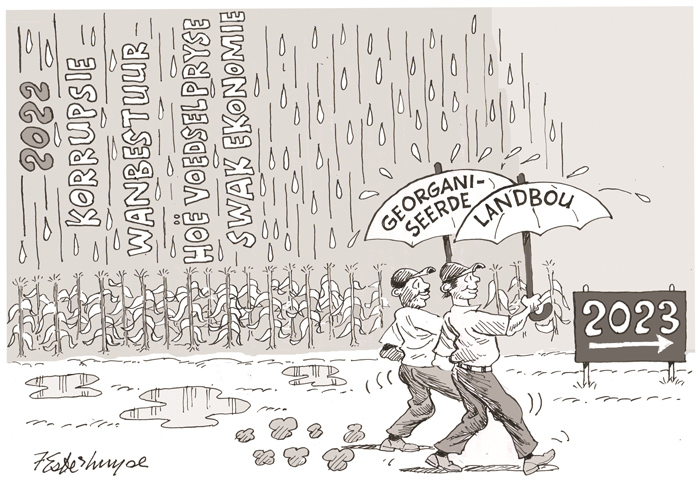
Pieter Taljaard
CEO, Grain SA pieter@grainsa.co.za
We all know that proper and careful management and responsibility, especially in a public context, are not at all among South Africa’s strong points. That is why any talk or suggestion of regulation of markets make the hair stand on end and cause us to listen carefully.
Grain SA has been in several discussions over the past few months where such proposals were made. With all the global crises it is probably understandable, but after almost three decades of deregulation it is hard to believe that some businesses can regard this as a solution in the current circumstances. For several reasons I am worried by such thinking or proposals, because we are currently really balancing on a knife edge. To name but a few: the unacceptably high levels of corruption and mismanagement, the total lack of service delivery and the inability of the economy to improve or even just maintain sustainable employment levels.
In the past I have written about the future pressure on Africa, but I have recently found another perspective as well. According to The Economist the global population has just passed the eight billion mark and pessimists still agree that environmental disasters will cause widespread famine. The last two leaps by a billion have each taken twelve years: from six billion people in 1998 to seven billion in 2010 and then until 2022. The next increase to nine billion is expected in 15 years or in 2037, thus a decreasing rate.
However, most surprising is the expectation that 50% of the predicted population growth in the next 28 years – that is until 2050 – will be in only eight countries. Five are in Africa (the Congo, Egypt, Ethiopia, Nigeria and Tanzania) and the other three in Asia (India, Pakistan and the Philippines).
 Another interesting fact is that the African continent now has more people than Europe and North America combined, opposed to the one third ratio of 42 years ago (1980). Looking at the numbers, one might better understand why China’s focus is in Africa to help the continent produce its own food so that Africa will not interfere in China’s current supply markets in the near future.
Another interesting fact is that the African continent now has more people than Europe and North America combined, opposed to the one third ratio of 42 years ago (1980). Looking at the numbers, one might better understand why China’s focus is in Africa to help the continent produce its own food so that Africa will not interfere in China’s current supply markets in the near future.
The sad statistic is that approximately 10% or 828 million people worldwide do not have enough to eat on a daily basis. Of these, about 60% live in countries suffering from conflict. This is precisely the danger, especially with what we all recently experienced, namely the conflict between Russia and the Ukraine that has made fertiliser significantly more expensive due to the increase in the price of natural gas. It sounds so simple, but look at the incredible hardship and impact on some parts of the population right across the world.
Furthermore, it is shocking to realise that for the third year in a row we have used more grain worldwide than we have produced. We are going to need a few record harvests in order to build up stock again.
For me the bottom line is simply the absolute importance and value of meaningful representation, to think together as a unit and to pursue the common goal. I realise that it has been difficult over the years, but there is no more important time than now to get it right. Organised agriculture is working hard to collaborate more effectively, achieve common goals and support each other in doing so, but it is necessary for us to speak convincingly on behalf of the producer and therefore there is no other choice than to associate.
We have seen once again that unrest escalates food prices, but we also know that high food prices can lead to unrest. All producers really need, is a chance to produce in peace and quiet, since Mother Nature provides enough challenges. I wish everyone a blessed Christmas time – let us trust together for another blessed season. Be safe, focus on that which you can control and support each other – we need it so badly.












